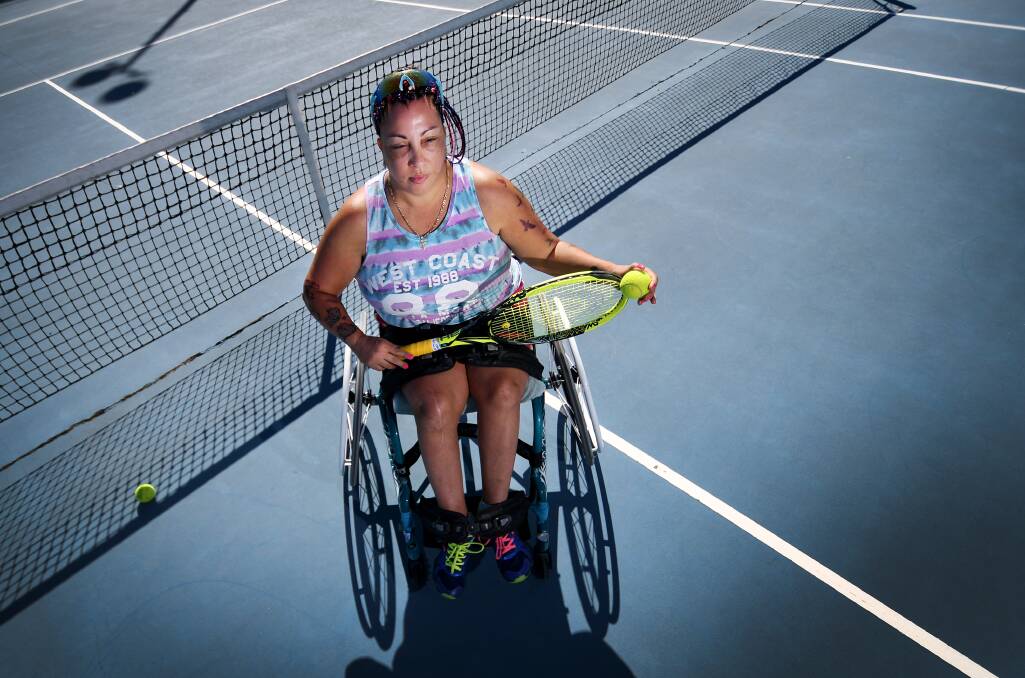
PARTIAL PARAPLEGIC Fiona Sing has her sights set on the Paralympics, but the National Disability Insurance Agency won’t help her get there.
Subscribe now for unlimited access.
$0/
(min cost $0)
or signup to continue reading
The elite tennis player discovered wheelchair sports a month out of rehabilitation, she was clinically depressed and had lost her purpose – she’s been denied tennis lessons as part of her NDIS plan.
“It’s supposed to be freedom of choice to allow people with disabilities to have the freedom to live a normal life, but a lot of us are not living a normal life because we have to fight for that normality – it’s not fair,” she said.
“It’s just been horrible, it’s not a good experience – some people have it lucky but some people just don’t get a fair go.”
Born with congenital mutilation of the hips, Ms Sing has had multiple surgeries to correct her condition.
She became an incomplete paraplegic in 2015, she has some use of her left leg but none in her right.
Under her NDIS plan, she has been afforded a new day wheelchair, a sports wheelchair and bed.
“I’m grateful for getting my new chairs and my bed, but I’m not grateful for what they’re putting all these innocent people through,” she said.
“It’s just horrendous all the stories, people come up to me and talk to me all the time about how they’re suffering through the NDIS and they shouldn’t need to do this - It should be so easy.
“It’s hard enough having a disability, let alone fighting people to get a fair go.”
Have an NDIS experience you’d like to share? Email madeline.link@fairfaxmedia.com.au
Since starting tennis, Ms Sing has gone from four full time carers to two just three days a week, a saving she wants the NDIA to consider in crafting her plan.
Read also:
Developing a plan involved exploring the individuals goals and aspirations as well as discussion on support needs, but that probably wouldn’t include tennis lessons, an NDIA spokesman said.
“The NDIS will generally not fund everyday costs – like tennis lessons - that are not related to the participant’s functional limitations or which would normally be purchased by any person,” he said.
“For example, general household furniture or appliances would not be funded, however adopted or specialised assistive items to address the participant’s functional limitations may be.”
There is no set time frame for an internal review to be complete, but decisions must be made as soon as practicable.


